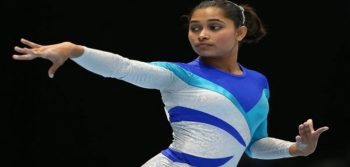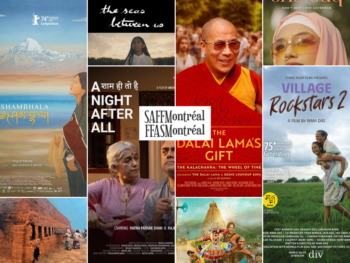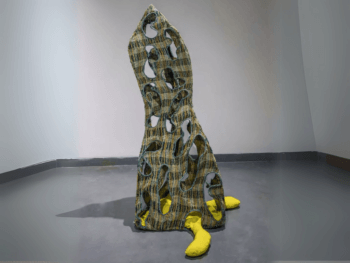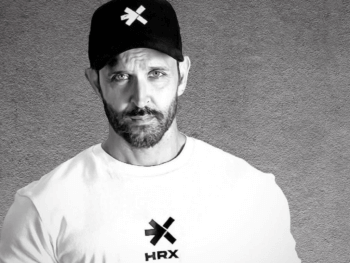Dipa Karmakar: First Female Gymnast Vaulting India Into The History Books
Jun 23, 2016

As Dipa Karmakar represents India this year in the 2016 Olympics, we take a look at why Karmakar’s success has such a huge impact on Indian sports.
The first Indian female gymnast to win a medal at the 2014 Commonwealth Games, a bronze medal at the Asian Championships in Hiroshima and finish fifth at the 2015 World Championships, will make her way to the 2016 Rio Olympics.
“I’m from Tripura. It’s a very small state and a very poor state,” Karmakar told BBC. The 22-year-old has had her eyes set on something bigger from the very beginning. Her coach, Biseswar Nandi, told The Hindu that “[Karmakar] wants a medal at any cost.” Since the tender age of seven, Karmakar has only been interested in one thing, and that was gymnastics. Karmakar is India’s very first gymnast of any gender to ever qualify for the Olympics in 52 years.
“On the day of the finals, my leg was badly swollen. Everyone advised me against doing the vault, but I had to do it. I had to take that risk because only after doing the toughest vault would I win a medal.” Karmakar says. Dipa’s first vault, the extremely difficult Produnova, which has only been successfully completed by five women, gave her a score of 15.066 points, the highest among 14 competitors.

Dipa Karmakar made history by becoming the first Indian Gymnast to qualify for the Olympics.
Photo Credit: www.indianexpress.com
With a population of over 1.3 billion, India has only won 20 Olympic medals (eight of those being gold medals from the Indian hockey team, one gold from Abhinav Bindra who won a shooting medal in the 2008 Beijing Olympics and two silver medals won back in 1900 by Norman Pritchard). This number makes us question, why so little medals from such a big country?
According to a study conducted by SMG Insight/YouGov, cricket is one of India’s most celebrated sports and 85 per cent of Indians watch cricket and 62 per cent participate in the sport at least four times a year. The Indian cricket team has won the World Cup twice, they are 2013 ICC Champions, 2016 Asia Cup Champions and, until recently, the number one test team in the world.
Let’s not forget that India was once a six-time consecutive Olympic gold medal recipient in field hockey as well. With staggering numbers like that, it’s easy to imagine why any sport included in the Olympics hardly gets any notice.

India's Cricket Team at the 2011 World Cup
Photo Credit: www.ibitimes.co.uk
Yet, with knowing that success is possible within the realm of sports in India, why does this not translate to Olympic success? Madhuli Kulkarni, a sports psychologist and founder of the ALTIUS Centre for Excellence in Delhi, believes that sports has traditionally taken a back seat to the importance of education for young Indians or their parents for that matter.
“Parents here have the authority to take the decisions in their child’s life. India was not a sports nation. Especially post-independence, Indian parents gave a lot of importance to academics and sport was considered as a ‘time pass’ activity or just for recreational purpose. Sport was never a priority for a majority of parents and their kids.” Kulkarni says.
She also believes that with emphasis given to mental education, rather than physical education, India did not maintain established playgrounds, training facilities or equipment to help athletes prepare and better themselves within their sport.
Olympic gold medalist Abhinav Bindra used his personal range for practice and stated that the facilities provided by the Indian Olympic Association were below par as well. Along with Bindra, Olympic bronze medalist in wrestling Sushil Kumar says that India needs to provide better training facilities as well as support to individuals wanting to pursue their dreams.
Dipa Karmakar also comments on the lack of support for Olympic aspirers by saying that, “The gym where I initially started did not have proper equipment. It didn’t even have a vaulting table so we would put mats on top of each other and make do with that.”

(L-R) Sushil Kumar (bronze medalist in wrestling) and Abhinav Bindra (gold medalist in shooting).
Photo Credit: www.thehindu.com
With the largely disappointing loss of India’s hockey team not qualifying for the Beijing Olympics in 2008, Pargat Singh, who captained India’s field hockey team at two Olympic Games, says that “the country had few players of international quality and the pool is further dwindling with the game not being promoted at the grassroots.” According to a 2008 report, Economic and Political Weekly, factors including health, education, public information and what they call “physical connectedness” all contribute to the lack of participants for Olympic sports.

India's London 2012 Olympic Winners.
Photo Credit: www.khelnama.com
For the 2016 Olympic games in Rio, India will be participating in men’s and women’s hockey, badminton, tennis, archery, rowing, athletics, discus, boxing, shooting, weightlifting, table tennis, wrestling, judo, and for the first time ever, gymnastics.
With the 2012 London Olympics seeing the best of India yet, two silver and four bronze medals, India is hoping to recapture their sporting spirit and bring home more medals than ever before. Karmakar remembers her first gymnastics competition, having no shoes and bearing an oversized, ill-fitting costume.
Come her next journey in Rio, she won’t have to worry about an oversized costume. She’ll be wearing the nation’s pride on her back.
From August 5 to 21, I’ll be on the edge of my seat cheering on India. Will you?

Dipa Karmakar with her medals.
Photo Credit: www.thebetterindia.com
Main Image Photo Credit: www.intlgymnast.com
Shilpa Sehgal-Rajput
Author
Shilpa Sehgal-Rajput is a freelance writer based in Chicago. Reminiscing about her passion for writing during her college days, she has made her way back from the corporate world, armed with a lace pen. When she’s not working on humorous short stories and epic novels, she’s living out her se...














































































































